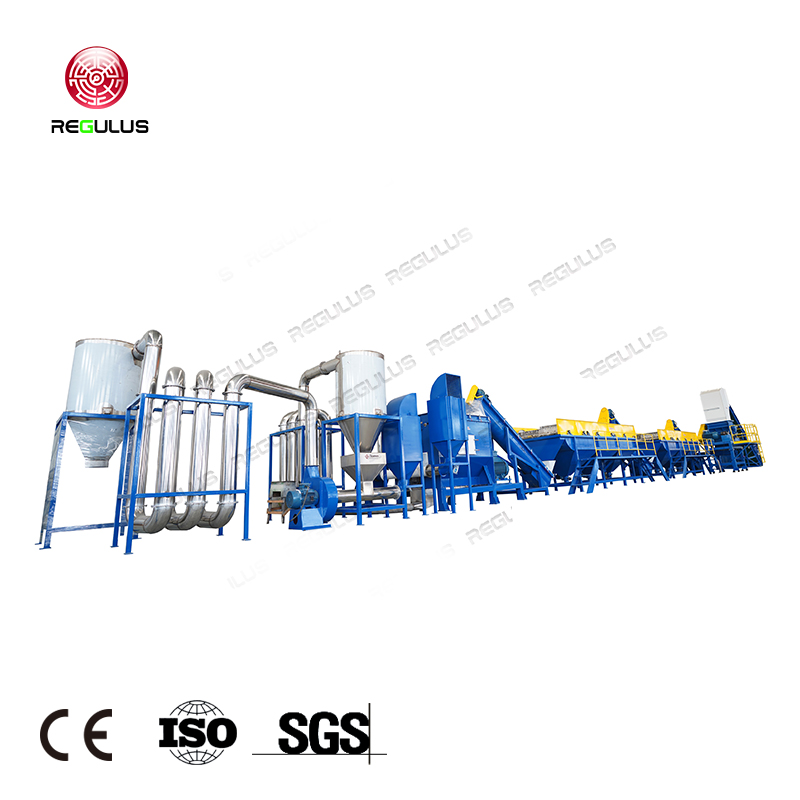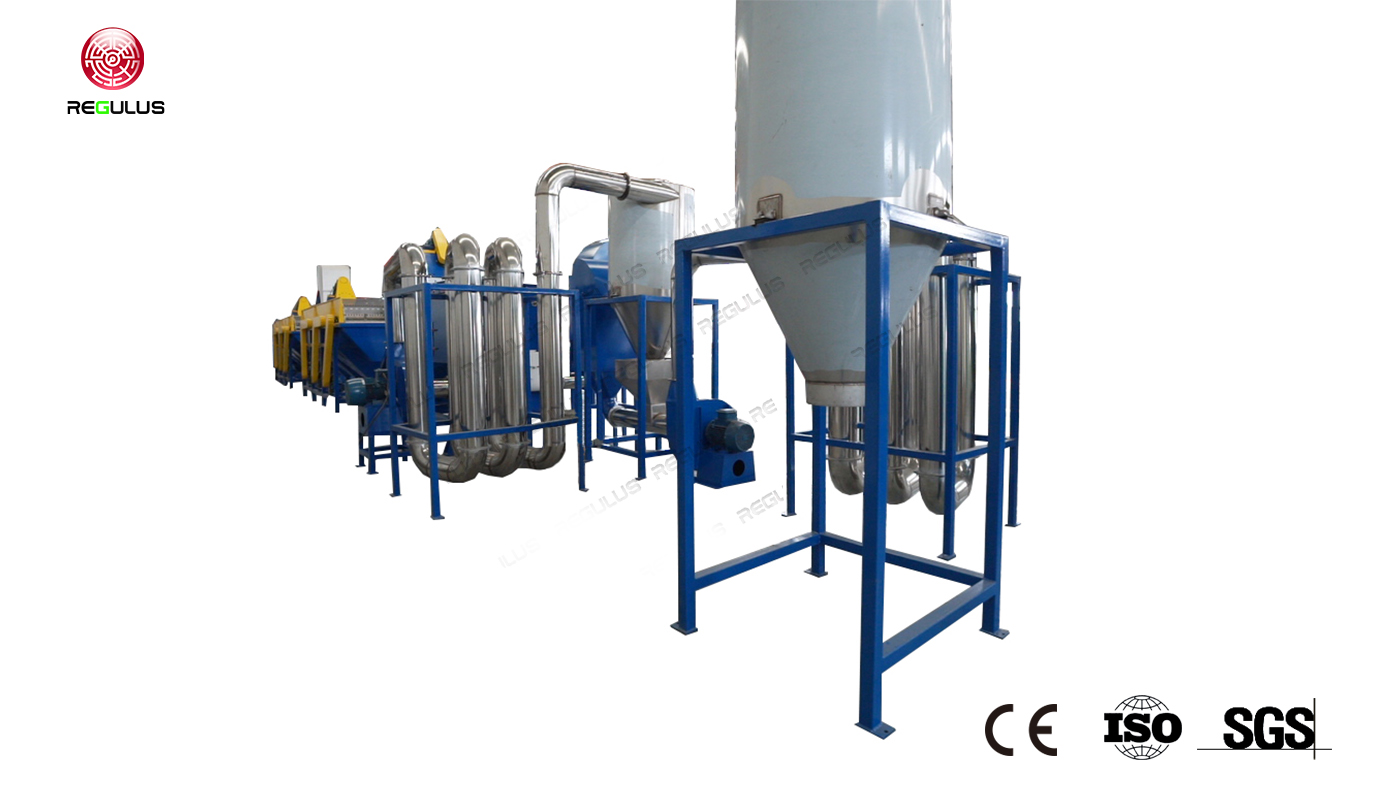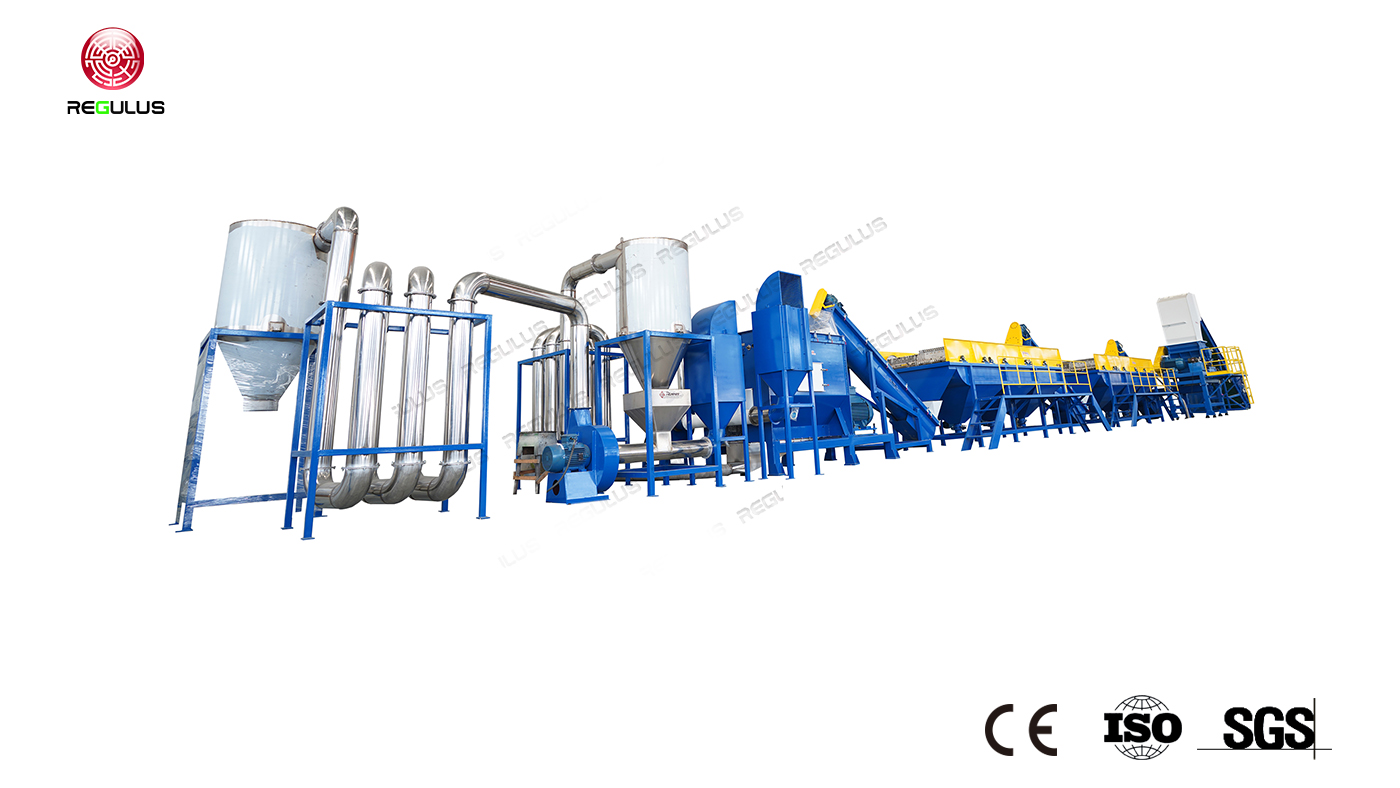Introduction
Plastic waste, particularly polypropylene (PP) and polyethylene (PE) materials, continues to pose a significant environmental challenge worldwide. However, the PP PE washing recycling line has emerged as an innovative and sustainable solution for managing and recycling this type of plastic waste. In this article, we will explore the concept of the PP PE washing recycling line, its key processes, and the benefits it offers in terms of plastic waste management and environmental conservation.

Understanding the PP PE Washing Recycling Line
The PP PE washing recycling line is a comprehensive system designed to effectively clean, separate, and recycle PP and PE plastic materials. It is a specialized equipment setup that encompasses various stages of plastic waste processing, including sorting, washing, crushing, and drying. The recycling line is specifically designed to remove contaminants, such as dirt, labels, and other impurities, from the plastic materials, resulting in clean, reusable plastic flakes or pellets.
Key Processes
The PP PE washing recycling line involves several essential processes to transform plastic waste into reusable materials:
Sorting: Plastic waste, including PP and PE materials, undergoes initial sorting to separate different types of plastics and remove any non-plastic contaminants. This stage helps streamline the subsequent processing steps and ensures the purity of the recycled plastic.
Washing: The sorted plastic waste is thoroughly washed to remove dirt, debris, labels, and other impurities. High-pressure water and detergents are used to agitate and cleanse the plastic materials, leaving them clean and ready for further processing.
Crushing: The washed plastic materials are then crushed into smaller pieces or flakes, making them easier to handle and increasing their surface area. This process enhances subsequent drying and melting processes.
Drying: The crushed plastic flakes are dried to remove any remaining moisture. This is crucial to prevent degradation during storage and subsequent processing steps. Various drying methods, such as hot air drying or centrifugal drying, may be employed to ensure the plastic flakes are thoroughly dried.
Pelletizing or Extrusion: Once dried, the plastic flakes can be further processed through pelletizing or extrusion. Pelletizing involves melting the plastic flakes and forcing them through a die to form uniform pellets, while extrusion melts the flakes and shapes them into various forms, such as sheets or profiles.

Benefits and Applications
Resource Conservation: The PP PE washing recycling line enables the efficient recovery and reuse of PP and PE plastic materials. By recycling these plastics, the line reduces the demand for virgin plastic production, conserving valuable natural resources and reducing environmental impact.
Waste Reduction: The recycling line significantly reduces the volume of plastic waste that would otherwise end up in landfills or incinerators. By transforming plastic waste into reusable materials, it contributes to a more sustainable waste management system.
Environmental Impact: Utilizing the PP PE washing recycling line helps mitigate the environmental impact of plastic waste. By diverting plastic waste from traditional disposal methods, it minimizes pollution, conserves energy, and reduces greenhouse gas emissions associated with plastic production.
Economic Opportunities: The recycled PP and PE materials produced by the washing recycling line can be used as raw materials in various industries, including plastic manufacturing, construction, and packaging. This creates economic opportunities and promotes a circular economy.
Compliance with Regulations: The PP PE washing recycling line enables compliance with environmental regulations and waste management standards. By implementing proper recycling practices, businesses and communities can fulfill their responsibilities in reducing plastic waste and promoting sustainability.

Conclusion
The PP PE washing recycling line plays a pivotal role in transforming PP and PE plastic waste into valuable resources. Through its sorting, washing, crushing, and drying processes, it ensures the production of clean, reusable plastic flakes or pellets. This sustainable solution contributes to waste reduction, resource conservation, and environmental preservation. By embracing the PP PE washing recycling line, we can address the challenges posed by plastic waste and work towards a more sustainable and circular plastic economy.
Post time: Aug-01-2023

